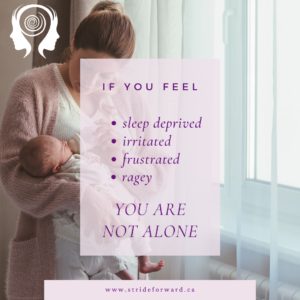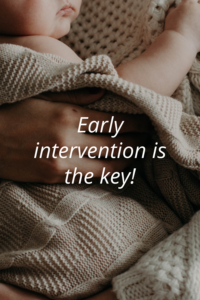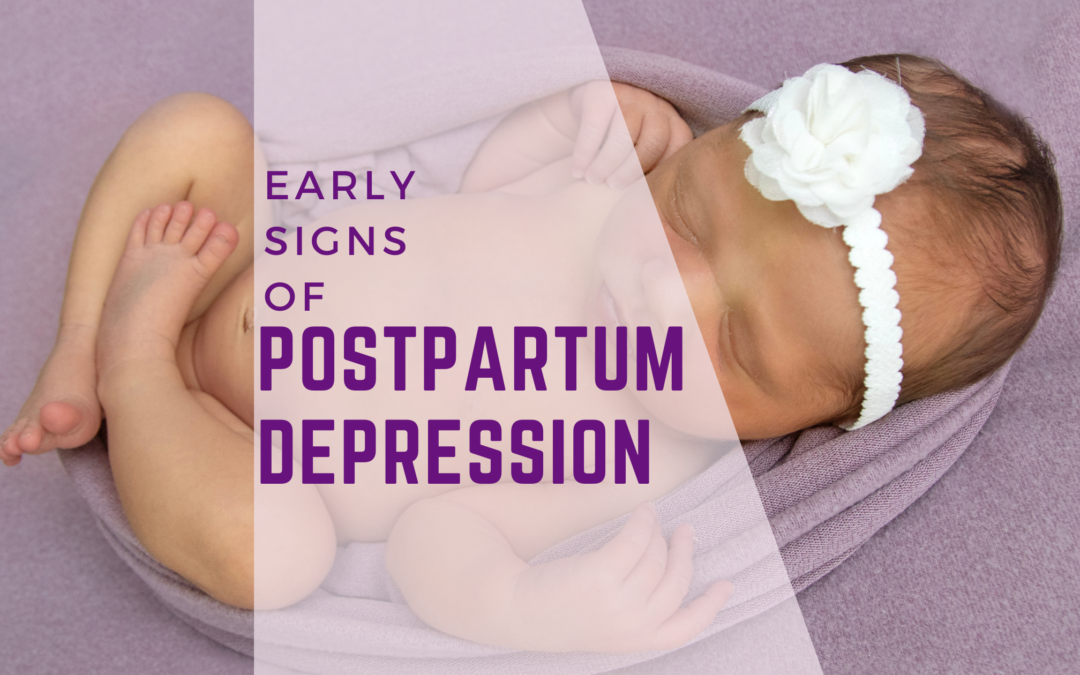Many of my clients wish they noticed the first signs of postpartum depression and started therapy earlier.
It is hard to know if it’s early signs of postpartum depression, sleep deprivation, baby blues or a combination of these. However, if you’ve been feeling tearful, overwhelmed, and hopeless for over two weeks, it’s time to seek help.
Here are some other early signs of postpartum depression:
Hard to bond with the baby
It’s common not to immediately feel a deep connection with your baby, especially if there were complications during the birth, you are experiencing breastfeeding challenges, or the baby stayed in the NICU.
However, with postpartum depression, it is not just hard to bond with the baby but you might feel distant or detached from the baby.
One of the early warning signs of postpartum depression is thinking that there’s something wrong with me for being unable to bond with your baby, instead of allowing yourself time and patience to adjust to this new phase of life.
You may also notice increased negative self-talk and thinking that you are a bad mom.
Feeling rage

Many new moms experience irritability, anger, and even rage during the early postpartum period.
You can feel frustrated when you are not able to eat sleep and even pee when you want to. Often, it also feels like your partner is not doing what they should. Add sleep deprivation to the mix and it creates a perfect environment for feeling rage.
It is important to recognize when you feel like you have no control over your emotions and seek help before it leads to harming yourself or others.
Nothing brings joy
Anhedonia, or the inability to find pleasure, is a common early sign of postpartum depression.
It becomes difficult to motivate yourself to do the things that used to make you happy when they no longer bring pleasure. You may question why you should bother spending your limited energy on an activity that no longer brings you joy.
Not feeling joy about what you do, may cause you to avoid socializing with friends and family and not leave your house, resulting in feeling isolated and unhappy.
Change in how much sleep and food you need.
It’s common for your sleep to be affected after having a baby, and you will get less sleep than you would like.
However, if you’re experiencing early signs of postpartum depression, you may have trouble falling asleep even when you have the chance. Additionally, if you’re not feeling rested after a decent amount of sleep, it could be a warning sign to look out for.
Another potential sign to watch out for are changes in your eating habits. You might feel hungry all the time, or you might lose your appetite altogether.
Early intervention is the key

I’ve listed some of the early signs of postpartum depression such as the inability to bond with your baby, regulate your emotions or find joy in things that used to make you happy. Additionally, changes in eating and sleeping patterns can be a symptom of postpartum depression.
It is important to be aware of these signs so that you can seek help from a psychologist trained in perinatal mental health. Early intervention can prevent the symptoms from worsening, result in a better prognosis, and require fewer sessions before you start feeling like yourself again.
Most importantly, recognizing the early signs of postpartum depression and seeking help promptly will help you start enjoying your new bundle of joy sooner!
#postpartumdepression
If you find yourself relating to the signs of early depression while reading this, know that you are not alone. Seeking help is a brave and important step towards healing and well-being. Reach out for a free consultation, where we can work together to determine the best course of treatment for you.


